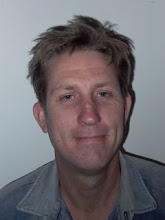"Not everything that matters can be measured, and not everything that is measured matters"
Aphorism attributed to Elliot Eisner, and from a sign in Einstein's office?, "Not everything that counts can be counted, and not everything that can be counted counts".
There has been a rather robust discussion on the ActKM listserve around 'cutting-out KM in the organisation', and the gist of the posts suggests that Executive don't value the output of KM as it isn't visible to them, it's a cost centre. They know that its inputs are valuable, but obviously the amount it contributes to the bottom-line for them is tenuous.
What are the reasons for this? Is it because KM is a maturing field that hasn't passed through the stage of connoisseur to critic?
'Thus… connoisseurship provides criticism with its subject matter. Connoisseurship is private, but criticism is public. Connoisseurs simply need to appreciate what they encounter. Critics, however, must render these qualities vivid by the artful use of critical disclosure'
Or is it because we deal in the tacit so much? I myself see KM as very closely aligned with Education, and KM practitioners almost as coaches that help realise the full-potential of an organisations Human Capital - by removing the obstacles of collaboration and helping the individual and organisation see how the development of Social Capital is ultimately to their benefit. (Is KM part of the triumvirate sandwiched between Learning and Change Management?)
As we move from the Information Economy to the Knowledge Economy education is going to be a centre of focus, and life-long learning an essential aspect of your career. The outcomes of your knowledge need to be visualised to be leveraged. Your Intellectual Knowledge needs to be surfaced, articulated, as advocated in the Nonaka and Takenuchi SECI model.
So how do we map this Social Capital? Even an egocentric view relies on it being shared across a network, which means at least one other must hold the same value?




